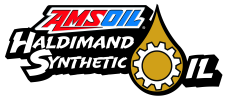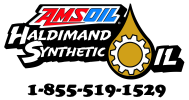Top Protection for Diesel Trucks and Heavy Duty Diesel Equipment
Why AMSOIL? | Both products exceed the latest API CK-4 specification. Heavy-Duty Synthetic Diesel Oil keeps equipment protected with 4 times better wear protection than rquired by the Detroit Diesel DD13 scuffing test. For even greater protection, Signature Series Max-Duty Synthetic Diesel Oil provides 6 times more wear protection than required by the test. Signature Series is engineered for hardcare enthusiasts and fleet owners interested in the best oil for their deisel engines, with reserve protection that allows them to extend their drain intervals.
Engine Protection
A diesel truck is a serious investment – don’t skimp on protection. AMSOIL synthetic diesel oils provide the ultimate protection for your hard-working diesel engine, preserving the horsepower you crave and keeping you on the road.
Turbocharged Protection
The extreme heat produced by turbochargers can be brutal on your oil. If your oil fails and your turbos are damaged, you start losing horsepower – or worse. Our synthetic diesel oils are designed to protect your horsepower. We build extra turbo protection into every drop, preserving turbos and delivering reliable horsepower.
Click here to see why Maximum Viscosity Protection is so important
Maintain Viscosity Under Shearing Forces

Hard-working diesel engines present a serious challenge to the lubricants that protect them. Tight clearances and intense pressures can generate enough force to tear apart the molecular structure of the oil, causing permanent viscosity loss. Permanent viscosity loss is termed “shear” and leads to accelerated equipment wear, oil consumption and deposit formation.
Shear stability measures a lubricant’s ability to withstand shearing forces without degrading to a lower viscosity. To meet CJ-4 requirements for shear stability, the American Petroleum Institute (API) requires diesel oils to pass the Kurt Orbahn 90-Cycle Shear Stability Test.
Maintain Viscosity Under Fuel Dilution
Resisting shear and maintaining protective viscosity in the harsh operating conditions of diesel engines is challenge enough for many diesel oils, but maintaining viscosity in the face of fuel dilution is another challenge altogether. Factors such as frequent starts, excessive engine idling, short trips and cold weather have contributed to moderate levels of fuel dilution in diesel applications for years, while recent issues with emission systems have brought the fuel dilution problem to a whole new level.
For example, AMSOIL has documented increasing fuel dilution levels in 2007-2009 Caterpillar C13 and C15 on-highway engines. There are many possible causes, including problems with a unit injector or leaking seals. Another cause of fuel dilution is new emission systems using in-cylinder post-fuel injection, a process most 2007-present light-duty GM, Ford and Dodge diesel pickups use to regenerate the diesel particulate filter.
Because diesel fuel is a natural solvent, it causes a multitude of problems when it contaminates the oil, including reduced oil viscosity, reduced oil film strength, increased engine wear (particularly in the cylinder/ring area), increased volatility, weakened lubricant detergency, accelerated lubricant oxidation, varnish formation, acid formation/ corrosion and low oil pressure.
The most notable problem associated with increased fuel contamination is reduced viscosity and the corresponding effect it has on oil performance. When combined with shearing conditions, as little as 4 percent fuel dilution is generally enough to reduce an oil’s viscosity to less than the specified viscosity grade.
AMSOIL Maintains Viscosity Under 4 Percent Fuel Dilution
AMSOIL sent five competitive synthetic CJ-4 5W-40 diesel oils to an independent laboratory for shear stability testing. Knowing the tough environment that diesels present to lubricating oils, AMSOIL doubled the standard Kurt Orbahn 90-cycle test and had the oils tested for 180 cycles. Samples were then contaminated with 2 and 4 percent ultra-low sulfur diesel (ULSD) fuel. As the graph shows, even after being shear tested for twice the industry standard and contaminated with 4 percent fuel dilution, AMSOIL maintained viscosity and was the only oil to stay within an SAE 40 viscosity rating. As other oils lost viscosity due to shearing forces and fuel dilution, their ability to protect against wear was jeopardized.
AMSOIL Premium Synthetic Diesel Oils are formulated with an ultra-shear-stable polymer system that maintains viscosity better than inferior products. Testing proves that AMSOIL provides unsurpassed shear stability, offering better viscosity control than competitive oils.
Even though recent fuel dilution issues forced AMSOIL to adjust its Premium API CJ-4 Synthetic Diesel Oil drain interval recommendations in 2007-present Dodge, Ford and GM LMM light-duty turbo-diesel pickups and 2007-2009 on-highway Caterpillar C13 and C15 engines to the manufacturer-recommended drain intervals, AMSOIL Premium Synthetic Diesel Oils remain the premium choice for diesel applications. AMSOIL Premium Synthetic Diesel Oils resist viscosity loss from both shearing forces and fuel dilution to maintain their protective film strengths, providing superior protection to all diesel engines.
Two-Million Mile Trucker
AMSOIL synthetic lubricants won’t let two-million mile trucker retire.
...read the full story



























































 Canada
Canada United States
United States